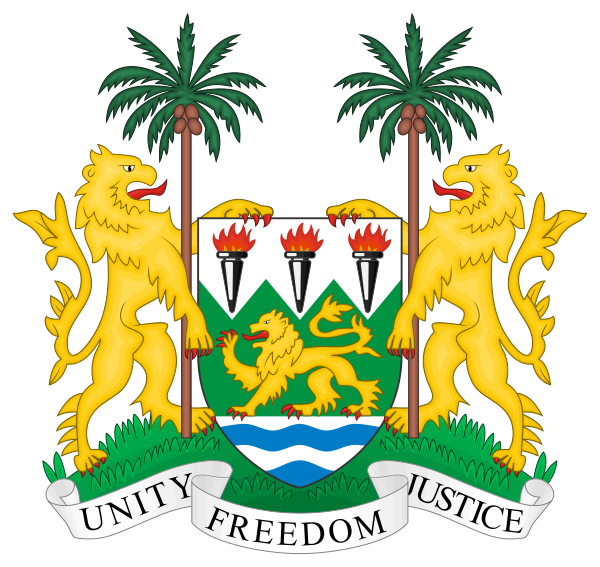
Introduction
The fisheries sector contributes about 10% of GDP, and fish is the largest single source of animal protein for the majority of Sierra Leoneans. It supplies about 80% of the total animal protein for consumption. The issue of post harvest loss is still a challenge in the artisanal sector and it is estimated to be about 15% in 2005 and it largely attributed to inadequate capacity in fish handling and processing.
Access of fish and fishery products to the EU and other lucrative International markets is one of the challenges currently facing the Ministry of Fisheries and Marine Resources. The Ministry succeeded in facilitating the visit of the EU inspection team in October 2009 to assess the capacity of Sierra Leone to comply with the EU requirements for the export of fish and fishery products to the EU. The Ministry has been working assiduously with the other stakeholders in the MDA’s towards the implementing of the recommendations of the EU Fish Inspection team.
Scope
All activities performed by the Fish Safety and Quality Control Unit are to ensure the availability of quality fish by good handling and hygienic practices of all the actors in the fishery sector from harvesting to the consumers.
Mission
The Ministry of Fisheries and Marine Resources has as its mission to plan, develop, rationally manage and conserve all living aquatic resources of the country for the benefit of the country.
In contributing to this, the Ministry will promote good handling and hygienic practices including:
- Special conditions for handling fish and fishery products in the artisanal and industrial sector.
- General conditions of hygiene applicable to premises, equipment and staff.
- Control and monitoring of products condition, packaging, traceability/identification, storage and transport.
- As well as adding value to fishery products with improved fish processing technologies.
Objective
The Ministry seeks to promote responsible and sustainable fishing by identifying methods and procedures for assessing premises and equipment in line with EU standard of operating procedures thereby reducing food processing related hazards and to develop compliance verification for evaluation of conformity to general requirements in fish handling and processing establishment and fishing vessels.
Formal Duties and Responsibilities of the Fish Safety and Quality Control Unit
Realizing that effective control systems are essential to protect the health and safety of domestic consumers’ Fish Safety and Quality Control Unit is:
- Responsible for all fish quality, handling and processing of fish and fishery products from harvesting to the market.
- Performs all Quality Assurance activities with reference to the required procedures.
- Responsible for the deployment of all quality Inspector to the fishing vessels. Fish processing establishments and artisanal landing sites.
- Responsible for import and export controls for fish and fishery products.
- Liaise with all other institution in the fish value chain involved in fish quality and hygiene issues.
- Liaise with industries for the adoption of the requisite International procedures for fish export.
- Coordinates, initiate and control all activities of the Fish Control Authority.
- The Officer in charge of the sanitary inspection of fishing vessels during transshipment, fish discharge and pre – licensing, fish processing establishment and the artisanal landing sites.
- Responsible for monitoring hazards and the development of monitoring plan and monitoring procedures and the sampling regime.
- Responsible for the development of list of laboratory tests and analysis for the following; Organoleptic examinations, histamine, microbiological checks (water micro/chlorine), heavy metals, PCBS, dioxin and dioxin – like PCBs, parasites, poisonous fishery products (poisonous fish, fishery products), freshness indicators and TVB – N.
- Responsible for risk management decisions for the uncertainty in risk assessment.
- Inspection of fish markets, improvement of fish handling procedures and fish market surveys.
- The promotion of economic value added products in the fisheries sector.
- Promotion of fisheries infrastructure development for fish export and economic growth.
- In charge of fish investment and export promotion and diversification of fish and fisheries products.
- Prepares trainings and training needs for new recruits and for refresher courses for fish inspectors.
- Collaborate with CA in monitoring and inspection of fishing industries for the adoption of the requisite international standards for fish export (HACCP, Traceability etc).
